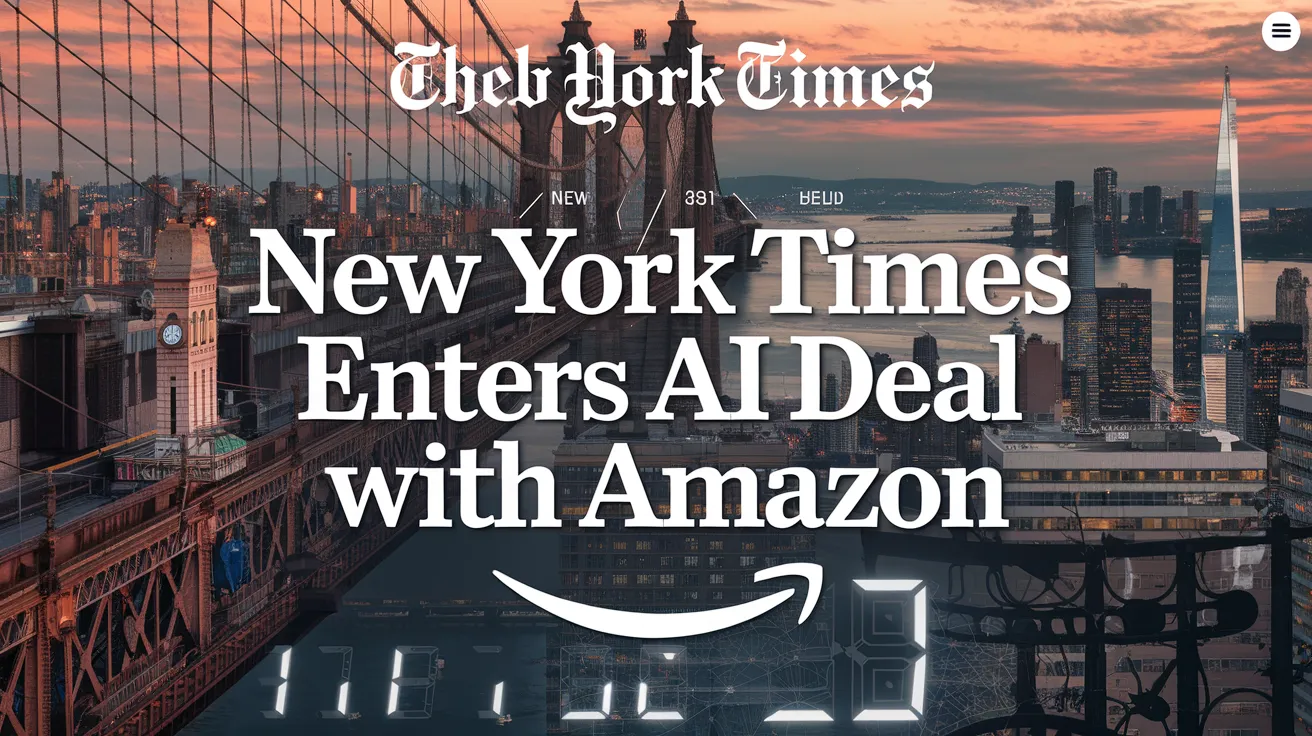New York Times Enters AI Deal with Amazon

The New York Times has announced a multi-year AI licensing agreement with Amazon, which will enable the integration of its editorial content across various customer experiences offered by Amazon. This partnership is strategically significant as it allows Amazon to incorporate summaries and short excerpts from The Times’ articles into products like Alexa and utilize those articles to enhance its AI models.
This arrangement follows a challenging period for The Times, which previously sued Microsoft and OpenAI for copyright infringement. The lawsuit accused these companies of improperly copying and using millions of its articles to train their AI models, which, in turn, led to substantial revenue losses from subscriptions, licensing, advertising, and affiliate programs. Other publishers, including The Intercept, Raw Story, CBC/Radio-Canada, and the owner of IGN and CNET, have taken similar actions against OpenAI, illustrating a growing trend in the industry regarding the protection of intellectual property rights.
Beyond merely supplying content from The Times itself, the agreement also extends to its sports-focused outlet, The Athletic, as well as its popular NYT Cooking recipe hub. This broad approach signifies The Times’ commitment to leveraging its diverse resources while safeguarding its financial interests in an evolving digital landscape.
This partnership coincides with Amazon’s recent initiatives, including the early access launch of its AI-enhanced Alexa Plus, which reportedly attracted ‘hundreds of thousands of customers.’ Despite the promising potential of this collaboration, the specific financial terms of the deal remain undisclosed.
Meredith Kopit Levien, the CEO of The New York Times Company, emphasized the importance of valuing high-quality journalism, stating in a note to staff, “The deal is consistent with our long-held principle that high-quality journalism is worth paying for. It aligns with our deliberate approach to ensuring that our work is valued appropriately, whether through commercial deals or through the enforcement of our intellectual property rights.”
This licensing agreement reflects a significant step forward in how traditional media companies can adapt to technological advancements while ensuring their content is integrated thoughtfully into emerging AI platforms. As AI continues to shape the future of content consumption, partnerships like this could redefine the relationship between media organizations and tech giants.